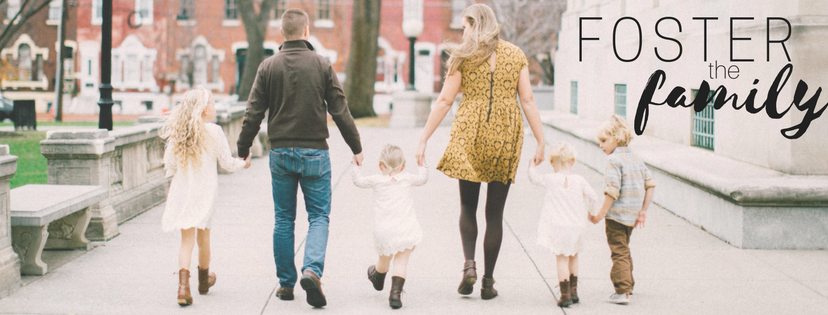I Come From the Right Side of the Tracks, So It's Not My Problem
Two nights a month I drive to one of the offices of the Division of Child Protection and Permanency in my county to speak at the state's foster parent interest meeting. Tonight is the interest meeting, and this week it’s in Camden.
Anyone who lives in or near New Jersey knows about Camden, but maybe you don’t. A few years ago, Camden was named the most dangerous city in America. 80% of high school students said they were afraid to go outside. 39% of its residents live below the federal poverty line. The median household income is about $26,000. Your chance of being the victim of a crime in Camden is 1 in 27. Camden is dangerous and poor and broken.
The closer I get to Camden, the more the scenery changes. Tattoo shops and “cash for gold” storefronts replace the coffee shops and copy stores closer to home. More and more buildings and homes are vacant and boarded up, more and more people gather outside of shops and stand on corners for no apparent reason. As I walk into the office, three guards look through my bag, question me about weapons, wand me down, and check my license. When I leave the meeting by myself, the state recruiter comes running out after me, and I realize he was aware of what I had forgotten: I had no business walking around Camden alone at 9:00pm.
Rewind to last week when I spoke at the same meeting on the other side of the county. In Voorhees, 5% of the residents live below the federal poverty line. The median household income is about $92,000. Your chance of being the victim of a crime in Voorhees is 1 in 2,648. I picked up coffee at the local Starbucks, parked in the town center right near my favorite restaurant, and walked in and waved to the straight-out-of-the-Andy-Griffith-show guard sitting at the front desk.
It’s shocking that these two cities are in the same county, only 20 minutes from each other. That you’re 98 times more likely to be the victim of a crime in one than the other. That the average income of one is over three times that of the other. But for all of the stark differences of these towns, there is one reality that binds them together. Both of these towns need these child protection offices. Both of these towns have broken families, struggling parents, hurting children.
Brokenness doesn’t discriminate. All of our communities are broken. All of our towns are needy. Your town. My town.
This is the reality that compelled me to get involved in foster care. There is something heartbreaking about learning of children in sub-Saharan Africa, who have no access to clean water or simple medicine or basic nutrition. It’s devastating. But there’s also something uniquely heartbreaking about a child in my own community--maybe in my neighborhood, maybe on my street--whose reality is so very different from my own children's.
There are kids who go to our children's schools and compete on their sports teams and play with them at the park, then go home to drug-addicted mothers, abusive fathers, poverty-ridden homes. Kids who who are hungry and hurting and afraid. Kids who become foster children.
Maybe you live on the "right" side of the tracks, maybe the "wrong" side. But there are kids on both sides who need homes, families, parents. No matter where you live, whether your town mirrors one extreme of my county or the other, there are kids in your community who need you.





